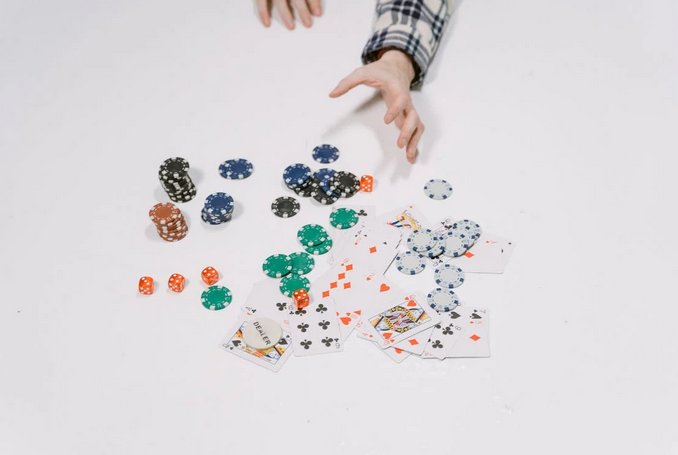Reasons Why You’re Losing at Poker
Poker is a game of strategy, skill, and luck. It’s easy to get caught up in the excitement of the game, but if you’re consistently losing at poker, it may be time to take a step back and analyze your approach. In this blog post, we’ll explore some common reasons players lose at poker and provide tips for improving their game.
Whether you’re a beginner or an experienced player, these insights can help elevate your skills and increase your chances of winning big at the table. So let’s dive in.
Lack of Patience
One of the biggest reasons players struggle at poker is a lack of patience. Poker is a game that requires discipline and the ability to wait for the right opportunities. Playing too many hands, chasing after unlikely draws, and getting involved in unnecessary confrontations can quickly deplete your stack. Learning to be patient, fold when necessary, and wait for favorable situations can significantly improve your results.
Poor Bankroll Management
Another common reason for struggling at poker is poor bankroll management. Without a proper bankroll, you’ll constantly play with scared money or go bust. Setting aside a dedicated poker bankroll and adhering to proper bankroll management principles is essential.
This means playing at stakes appropriate for your bankroll size, avoiding unnecessary risks, and never risking more than you can afford to lose. The good news is that many people use poker analyzers to help them manage their poker bankrolls more effectively; you can do more research to learn on how does the poker analyzer work.
Inadequate Study and Preparation

Poker is a game of skill, and like any skill, it requires continuous learning and improvement. If you’re not putting in the time to study and prepare, you’re likely to fall behind. Reading books, watching training videos, analyzing hand histories, and discussing strategy with other players are all valuable ways to enhance your understanding of the game. Investing in your poker education will pay off in the long run.
Lack of Emotional Control
Emotional control is crucial in poker. Letting your emotions dictate your decisions can lead to costly mistakes. Tilt, anger, and frustration can cloud your judgment and cause you to make irrational moves. Developing emotional control and detaching yourself from the outcome of individual hands is key to long-term success. Learn to manage your emotions and maintain a calm and focused mindset throughout your sessions.
Ignoring Position and Table Dynamics
Position and table dynamics play a significant role in poker. Ignoring these factors can put you at a severe disadvantage. Understanding the power of position and using it to your advantage is essential. Additionally, observing the dynamics at your table, identifying tight or aggressive players, and adjusting your strategy accordingly can give you an edge over your opponents.
Lack of Appropriate Game Selection
 Choosing the right game is crucial for your success at the poker table. You’re setting yourself up for failure if you consistently play games where the competition is significantly stronger or the stakes are too high for your bankroll. Be honest about your skill level, and choose games with a reasonable chance of success. Building your bankroll gradually in softer games will help you progress to higher stakes in due time.
Choosing the right game is crucial for your success at the poker table. You’re setting yourself up for failure if you consistently play games where the competition is significantly stronger or the stakes are too high for your bankroll. Be honest about your skill level, and choose games with a reasonable chance of success. Building your bankroll gradually in softer games will help you progress to higher stakes in due time.
Poker can be a challenging game, but it’s also incredibly rewarding when played well. By recognizing and addressing why you might be struggling, you can take steps to improve your game and increase your chances of success. Patience, bankroll management, study, emotional control, awareness of position and table dynamics, and appropriate game selection are all essential aspects of becoming a better player.…
Read More


 In the early position, you are one of the first to act. This is the least favorable position because you have the least amount of information about the other players’ hands. You also don’t have much control over the pot size. To make up for this, you must be very selective about the hands you play in the early position. Only play the best hands, and be willing to fold even premium hands if the situation isn’t ideal. So if you’re only playing 80% of the hands, you’re already ahead of most players.
In the early position, you are one of the first to act. This is the least favorable position because you have the least amount of information about the other players’ hands. You also don’t have much control over the pot size. To make up for this, you must be very selective about the hands you play in the early position. Only play the best hands, and be willing to fold even premium hands if the situation isn’t ideal. So if you’re only playing 80% of the hands, you’re already ahead of most players. The last and best position to be in is the late position. In the late position, you have the most information about the other player’s hands and control over the pot size. You should be playing the vast majority of your hands in late position. I would recommend playing around 80% of the hands you are dealt in late position. This may seem like a lot, but remember that most players will be folding 20% of their hands in a late position.
The last and best position to be in is the late position. In the late position, you have the most information about the other player’s hands and control over the pot size. You should be playing the vast majority of your hands in late position. I would recommend playing around 80% of the hands you are dealt in late position. This may seem like a lot, but remember that most players will be folding 20% of their hands in a late position.
 One of the most important things you can do when preparing for a poker
One of the most important things you can do when preparing for a poker  Since you will be playing against other people in a poker tournament, it’s essential to understand the psychology of poker players. It will give you a significant advantage over your opponents. Remember, most people play poker for fun and don’t take it too seriously. As such, they are often more emotional and less rational when making decisions. If you can learn to read their tells and exploit their weaknesses, you’ll be in a great position to win the tournament.
Since you will be playing against other people in a poker tournament, it’s essential to understand the psychology of poker players. It will give you a significant advantage over your opponents. Remember, most people play poker for fun and don’t take it too seriously. As such, they are often more emotional and less rational when making decisions. If you can learn to read their tells and exploit their weaknesses, you’ll be in a great position to win the tournament.
 Even if you have a bad hand, there’s always an opportunity to
Even if you have a bad hand, there’s always an opportunity to